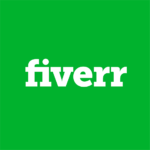
How to Become a French Translator
If you are wondering how to become a French translator, you can follow the path I took in six practical steps.
They can lead you to governmental work, office work or a freelance career, depending on what type of job you are looking for.
Check out these six steps to becoming a French translator.
Contents
- 1. Do free translations for NGOs and volunteer organizations
- 2. Become a secretary or assistant in an established translation office
- 3. Register on translation job and freelance sites
- 4. Create a French translator profile on social media
- 5. Price your translation work and provide discounts
- 6. Join an association of professional translators
- Why to Become a French Translator?
- What Are the Tools of the Trade for Professional Translators?
- And one more thing...
1. Do free translations for NGOs and volunteer organizations
When I had reached an advanced French level, I got into translating by doing free translations for Translations for Progress. It is a site that puts you into contact with NGOs (non-governmental organizations) who need translations.
Although they do not pay you, they offer a correction for your translation so you will be actively building both your translation skills and your resume. Plus, you will sometimes get prizes for your work. For example, I received a flash drive and a tote bag from an NGO.
When you are at this stage, always start translating French to English (or whatever your native language is). It is easier for you to produce a flawless final product in your native language.
Eventually, when you feel confident, you can try English to French. Nevertheless, it is important to keep in mind that some professional translators only translate into their native language for ethical reasons, assuming that they can only write truly perfectly in their native language.
2. Become a secretary or assistant in an established translation office
Although many translators operate entirely online, others have physical offices and several employees. This offers a great opportunity for you to get your foot in the door, see how professional translation work is done and network with experienced translators. Just open Google Maps in your area, type in “translators” and see what is there!
Recently, I had the opportunity to work as a bilingual assistant in a small translation office (four employees). The job opening was as an assistant, but most of my day was spent translating so that my boss, a certified translator, could review and approve my work.
The nuanced grammar I learned and the experiences that my boss shared with me could not be found working as a freelancer. In fact, if you dream of being a self-employed French translator, working for a while in a translation office before going freelance can really boost your resume.
3. Register on translation job and freelance sites
Two popular job boards are Fiverr and ProZ. Here you can make a professional profile and search/bid for jobs.
Usually, you will have to negotiate prices and the client will stipulate several conditions, such as due date, years of experience, native language and software to be used. Moreover, these sites offer forums for translators where you can learn valuable information about translation.
4. Create a French translator profile on social media
While working at the translation office, I found that we received far more work from Facebook than from the translation job boards. If your business is not on Facebook today, it might as well not exist!
All you have to do is create a profile for your translation services and Facebook browsers can find you. LinkedIn is also a great platform to put your work experience as a translator.
As the operator of my office’s social media accounts, I found that there are a few strategies you can use to make your professional French translator account stand out.
- First, think of a catchy business name with the word “translations” in it.
- It is a good idea to design a logo for your account so you look like the real deal.
- Make sure to list the specific translation services you provide, such as “essay translations,” “college application help” or “certified translations” (if that is the case—more on this below).
In my experience, very few translators focus on social media marketing, so it is a great opportunity to attract clients.
5. Price your translation work and provide discounts
It is difficult to say how much you should charge for your translation work, because it depends on the language of the translation and the country in which you are based. For example, in the U.S., you can find prices ranging anywhere from $25 to $75 per page, depending on the timeframe and type of document (design elements can raise the price).
You can also charge per word. I have seen prices from 10 to 15 cents per word for French. Keep an eye on your competition, such as the prices other translators advertise on their websites or winning bids on job boards, to set your own prices accordingly.
Many translators will offer promotions when they are contacted by a new client. For example, if you normally charge $25 per page, you could offer to do a project for $10 a page. This way, there is less risk for the client and they will come back for more work in the future. Another strategy is, if you have a multi-page project, you can offer to do the first few pages for free.
6. Join an association of professional translators
This should be a given, but once you have a solid foundation of work experience, you should join your country’s translation association.
In order to join many of these organizations, such as the American Translators Association, you must pay for and pass an exam, then pay dues. By passing the exam you will officially become a certified French translator and can market yourself as such.
This allows you to do translations in the public sector, such as being an expert witness in court if a translated document is disputed. Legal documents also typically must be translated by a registered translator. Plus, many clients will prefer registered translators because it is a recognizable standard of quality.
FluentU takes authentic videos—like music videos, movie trailers, news and inspiring talks—and turns them into personalized language learning lessons.
You can try FluentU for free for 2 weeks. Check out the website or download the iOS app or Android app.
P.S. Click here to take advantage of our current sale! (Expires at the end of this month.)
Why to Become a French Translator?
- French plays a crucial role at the United Nations. As one of the working languages of the UN, French remains a powerful language of diplomacy. It is one of the six languages used for official business at the UN. Therefore, the UN offers several career paths for translators, including interpreters (verbal translators), editors, terminologists (translator of specialized/technical vocabulary) and proofreaders.
Also, thanks to protocols like the “Minimum standards for multilingualism of United Nations websites,” the UN makes sure that all six official languages are equally represented in their communications. If you are interested in how to become a French translator at the UN, check out the United Nations Language Careers site.
- Governments around the world routinely employ French translators. Check out the state, provincial, city or federal agencies where you live to find local opportunities for French translators.
For example, check out this page from the CIA. If you are allowed to work in Canada (both French and English are official languages), there are lots of jobs available in translation for French speakers. You can read about how bilingual jobs in Canada are staffed here.
- French is set for dramatic demographic growth this century. Far from the fears that French will disappear, France boasts the highest birth rate in Europe. But this pales in comparison to the potential number of French speakers that will be born in Africa this century, not to mention the fact that French is spoken on five continents. Needless to say, French is not going anywhere anytime soon.
What Are the Tools of the Trade for Professional Translators?
Technology has made many aspects of translation easier. Not only are these tools incredibly popular, they are now expected of most professional translators, here’re some of them:
- Trados: recognizes repeated texts and provides an automatic translation. You just have to review. In many job postings on translation sites, the clients will explicitly request experience with Trados.
- ABBYY FineReader: turns scanned images into editable documents. You can load images in JPG format, for example, and produce an editable Microsoft Word document that converts images to text. Again, all you have to do is edit.
- Microsoft Publisher and Adobe Illustrator: for translations with lots of design. Publisher offers all the design features of Word and more. Like ABBYY FineReader, Adobe Illustrator also allows you to convert images of words to text and can form editable shapes based on the design elements in the document.
Despite the rise of technology, translation remains a great career option for language enthusiasts. As you well know, Google Translate just cannot match a human touch. Although translation is more complicated than most people think, if you are willing to put in the time and effort, you will be prepared to take the steps needed to become a French translator.
Download: This blog post is available as a convenient and portable PDF that you can take anywhere. Click here to get a copy. (Download)
And one more thing...
If you like learning French on your own time and from the comfort of your smart device, then I'd be remiss to not tell you about FluentU.
FluentU has a wide variety of great content, like interviews, documentary excerpts and web series, as you can see here:

FluentU brings native French videos with reach. With interactive captions, you can tap on any word to see an image, definition and useful examples.

For example, if you tap on the word "crois," you'll see this:

Practice and reinforce all the vocabulary you've learned in a given video with learn mode. Swipe left or right to see more examples for the word you’re learning, and play the mini-games found in our dynamic flashcards, like "fill in the blank."

All throughout, FluentU tracks the vocabulary that you’re learning and uses this information to give you a totally personalized experience. It gives you extra practice with difficult words—and reminds you when it’s time to review what you’ve learned.
Start using the FluentU website on your computer or tablet or, better yet, download the FluentU app from the iTunes or Google Play store. Click here to take advantage of our current sale! (Expires at the end of this month.)







